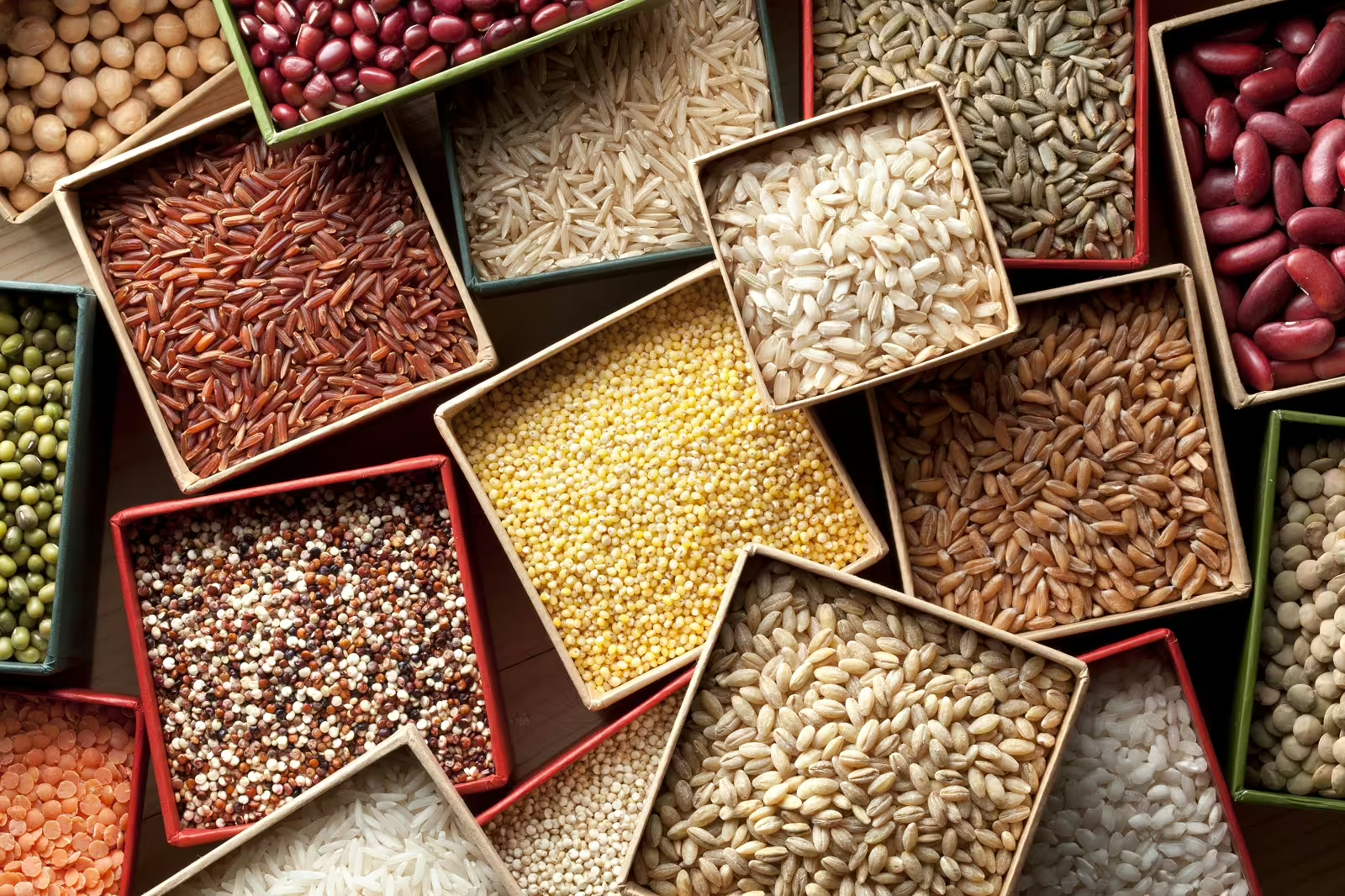Authors
Melanie Levine, Manager, Agriculture and Food, Ludmila Hannah Cmarkova, Intern, Agriculture and Food
The World Business Council for Sustainable Development (WBCSD) and One Planet Business for Biodiversity (OP2B) have supported the design, promotion and training opportunities during the Ellen MacArthur Foundation’s Big Food Redesign Challenge. This effort aligns with WBCSD’s goal of creating markets for diverse ingredients, further promoting crop diversification – a key pillar of WBCSD and OP2B’s regenerative agriculture approach.
Launched by the Ellen MacArthur Foundation in partnership with the Sustainable Food Trust in 2023, and enabled thanks to funds raised by players of People’s Postcode Lottery (UK), the Big Food Redesign Challenge aims to catalyze and inspire the food industry to build a better food system. The Challenge brings together ambitious producers, retailers, start-ups and suppliers to design new food products – or redesign existing ones.
Private sector innovation is crucial for scaling up crop diversification
Despite the numerous benefits of crop diversification, most farmers continue to practice monoculture farming due to the lack of market demand for diverse crops.
The private sector has a significant role to play in supporting the development of such markets, which is crucial to encourage farmers to diversify their crops. Food companies can develop innovative products that utilize a variety of plant-based ingredients, for example, thereby driving demand and making crop diversification a more viable option for farmers.
Scaling food product redesign and building markets for diverse crops
WBCSD and OP2B foster pre-competitive industry collaborations to address key bottlenecks to scaling crop diversification. The key focus areas of this work are the development of portfolios to boost cultivated biodiversity and increase the resilience of the food and agriculture models. To maximize the benefits of the food systems, circular economy principles, which entail regenerating nature, should be applied across all dimensions of food design, from product concept, ingredient selection, sourcing and packaging.
As part of this ambition, OP2B supported the Foundation’s Big Food Redesign Challenge to advance a shared vision for increased crop diversification and circularity. The OP2B team was part of the judging panel for the Challenge. They evaluated submitted products against a vision for future supply chains in which food products and packaging are regeneratively produced, low-impact, diverse and utilize upcycled ingredients.
During the Design phase, participating companies submitted up to five products that were scored using the Circular Design for Food Framework (CDFF). In total, 186 products submitted by 71 participating organizations, including 51 small businesses and start-ups, from 15 different countries made it to the current Production phase. OP2B’s food systems experts evaluated 10 submissions, reviewing innovative products ranging from mushroom-based ‘jerky’ to granola bars that have been reformulated to make use of diverse and nutrient rich ingredients. The assessments were built on analyses using HowGood’s ingredient and product sustainability database. The Challenge’s products performed better than standard industry products across eight key sustainability areas, notably in terms of GHG emissions and biodiversity impact.
Among many products that made it through the Design phase are, for instance, a new porridge by Spoon Cereals. They have discovered that black oats are a unique, resilient crop grown in Norway that requires minimal fertilizers and no chemicals due to its natural resistance to pests and diseases. Besides black oats, the porridge contains an upcycled oat ingredient, a by-product from oat milk production, along with UK-grown chia seeds, applying circular design principles, fostering crop diversity, and supporting regenerative farming practices. Meanwhile, Hodmedods’ lentil ragout utilizes whole lentils sourced from diverse arable rotations on British farms. This type of farming prioritizes soil health and reduces food waste by incorporating lentils that don’t meet conventional sale standards.
A range of products across 39 categories have successfully advanced through the Challenge, demonstrating the broad applicability of the CDFF.
”Changing our food system to one based on the principles of the circular economy is one of the most powerful things we can do to tackle the biggest global issues of our time. By rethinking the ingredients they use and how those ingredients are grown, food brands and retailers have the power to make food in a way that allows nature to thrive.
The Big Food Redesign Challenge, and the enthusiasm shown by Challenge participants, is demonstrating that it is possible to build a better food system that regenerates nature – one where every box of cereal, every ready meal, every bag of flour, cold drink, treat and all our kitchen staples, are grown in a way that is actively improving soil health, building biodiversity and contributing to tackling climate change.
As momentum continues to build, we’re looking forward to seeing products that put nature first on supermarket shelves in early 2025.”
Beth Mander, Programme Manager Food Initiative, Ellen MacArthur Foundation
Building resilient food systems through crop diversification
Regenerative agriculture is a holistic, outcome-based approach to farming that transitions agricultural practices to produce ingredients in ways that have positive outcomes for nature. The goal is to enhance soil health, sequester carbon and support biodiversity and is key to building resilient food systems. It involves practices such as cover cropping, limited tillage, rotational grazing, reduced use of fertilizers and crop rotation.
A key aspect of regenerative agriculture is crop diversification. Conventional agricultural practices — often characterized by large-scale production of a limited number of crops — leave food systems vulnerable and heavily reliant on synthetic fertilizers. Monoculture farming contributes to environmental degradation including soil erosion, decreased soil fertility and loss of biodiversity.
Varying the crops grown not only restores soil quality and enhances biodiversity, but it also has the potential to provide significant economic benefits. This approach can also help farmers reduce economic risks associated with adverse weather conditions and benefit from having multiple buyers for different crops. Furthermore, regeneratively produced crops have been shown to have greater nutrient density and can contribute to healthier, more nutritious diets worldwide.
Bringing innovative food products to the market
The last Retail phase of the Challenge will involve bringing innovative products to market with the help of retailers. The Ellen MacArthur Foundation has developed a digital catalogue of 127 products which enables retailers to shortlist the Challenge products of interest and contact the participating food companies for follow-up conversations and product stocking requests. So far, 87 products have been shortlisted by different retailers, which will ideally impact the entire value chain leading to market development for farmers who are integrating diverse crops in their production systems. Retailers interested in showcasing the Challenge products on their shelves can contact the Ellen MacArthur Foundation at challenge@bigfoodredesign.org.
By rethinking the ingredients used in food products as well as their production process, companies have the power to make food that has been designed for nature to thrive the norm. The Foundation’s Big Food Redesign report provides further rationale for food brands to make this change, and the framework for doing so.
The recently published Plant-Forward Opportunity Business Playbook, co-developed by WBCSD and Deloitte, can also serve as a useful tool for companies aiming to redesign their current product portfolios.
Outline


